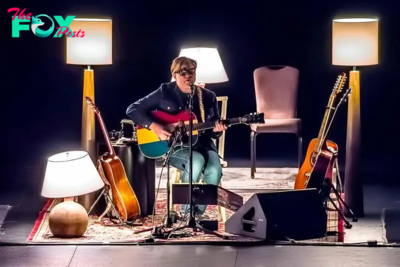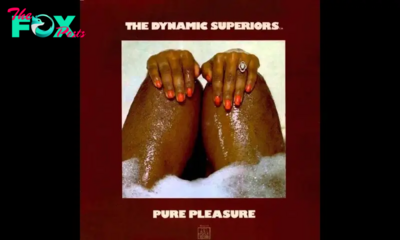Entertainment
Broadway Melody – New York Theater
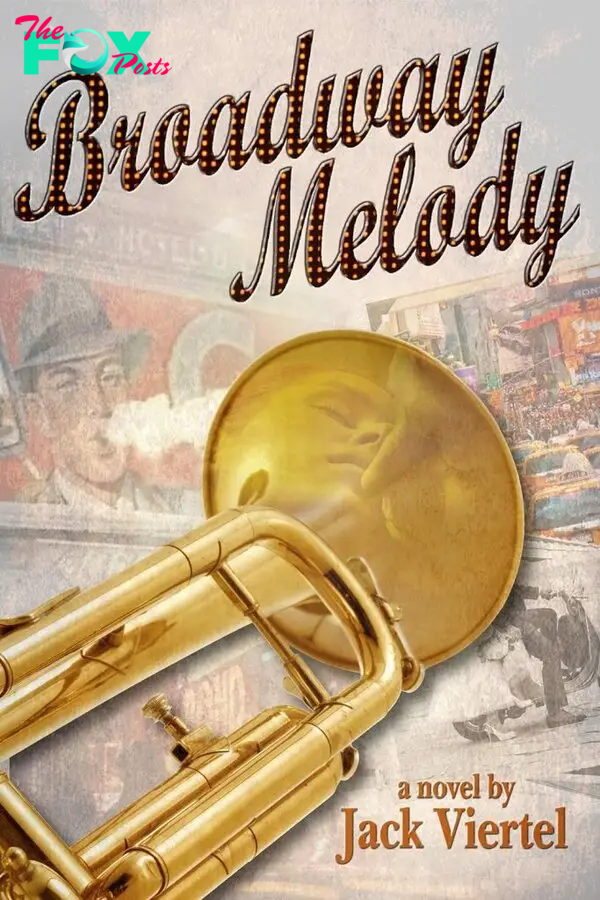
There’s an arresting tidbit about Leonard Bernstein and “West Facet Story” close to the start of “Broadway Melody” (Benzinger and Frank, 492 pages), written by Jack Viertel, whose illustrious and assorted profession within the theater consists of his immensely informative “The Secret Lifetime of the American Musical: How Broadway Reveals Are Constructed.” However this new ebook is a novel, Viertel’s first, which focuses on the lives of three fictional characters — Ike, a trumPet participant; Vincent, a stagehand; and Aurora, a performer.
Ike performed trumpet for “West Facet Story,” which has no viola elements within the rating, we’re informed, as a result of earlier than Bernstein’s musical landed within the Winter Backyard theater, there was “a flop known as Shangri-La” there that Bernstein attended, “and located the home viola gamers within the pit so awful that he directed his orchestrators to put in writing the musical charts for his new present with out violas.”
Ike is a made0up character. I questioned: Is the viola story true?
I ended studying to do a fast Web search. There actually was a musical known as “Shangri-La” that flopped (21 performances in 1956.) And there actually are not any violas in “West Facet Story.” However an article in Gramophone journal mentioned that Bernstein bought removed the violas and harp to make room within the small orchestra pit for all of the brass and Latin-American percussion devices wanted for the rating; there was no point out of Bernstein hating the particular viola Gamers. So was the viola-hating story within the ebook based mostly on insider information by Viertel the long-time theater government and producer, or was Viertel as novelist simply making up a cheeky fictional origin story for the absence of violas?
Not content material with what I found on-line, I reached out to the creator by his consultant. His relayed response: “It’s true that he hated the viola gamers a lot on the Winter Backyard that he refused to have viola elements within the WSS rating. Whether or not the present he noticed was Shangri La or not I do not know. It looks like a logical present time-wise, however I don’t know for certain.”
Not each reader will have the ability to query the creator straight, and even I couldn’t maintain going again to him for every passage that made me wonder if it was one during which he was enjoying “quick and unfastened” or one during which he was being “roughly correct” — to cite from his transient foreword explaining his strategy to the details about Broadway on this work of fiction.
Let that function a caveat: “Broadway Melody.” is an entertaining learn, however theater lovers drawn to it as a supply of genuine Broadway historical past and even simply dependable dish ought to be ready to make facet journeys to Google and IBDB and YouTube for verification or correction or, on the very least, elaboration.
I made such journeys steadily; the ebook is filled with theater lore, individuals, locations, and performs that will or is probably not true. Some, just like the Bernstein story, use actual names. Such celebrated figures as Ethel Waters, Joseph Papp, and Jerry Herman make cameos within the ebook. There are just a few pages about well-known theater-related occasions, such because the demolition of the 5 previous theaters between forty fifth and forty sixth Avenue, changed by a resort now known as the Marriott Marquis, a “formless grey bunker… Soviet in model, ugly and threatening”
There’s even some literary evaluation. There are a few pages on the importance of two strains of dialogue in a revival of Thornton Wilder’s “Our City,” at Broadway’s Lyceum Theater, which didn’t mistake the play as “a sentimental paean to small-town life” however fairly acknowledged it as a “clear-eyed examination of the struggling and emotionally unfulfilled world that America had appeared to turn into.”
Viertel enthusiastically sprinkles his narrative with the titles of little-remembered flops (which I seemed up; the next parenthetical dates and variety of performances aren’t within the novel): Kander and Ebb’s “70, Ladies, 70” (35 performances in 1971), “The Fig Leaves Are Falling,” (4 performances in 1969) “Pousse-Café (three performances in 1966.) All three most important characters work on “Nowhere to Go However Up” which was certainly on the Winter Backyard for 9 performances in 1962, however its composer was Sol Berkowitz, not, as within the novel, Sid Lupowitz, Ike’s previous Military buddy, with whom he had shaped a band throughout World Battle II to play at army features.
All of those allusions are labored into the novel as a part of the lives and views of his three most important characters, which at all times take central place in its pages.
As a five-year-old, Aurora Feik was propped on high of a Magnavox console file participant, which was enjoying Ethel Waters’ singing “Taking A Likelihood on Love.” This second conjures up her to turn into a singer, renaming herself Aurora Shelton — and , after some success on Broadway, she ultimately makes a particular journey to go to Miss Waters, in an effort to thank her.
As a younger teenager, Vincent Donnelly bought a job by his Irish immigrant father at a light-weight manufacturing facility, the place he invented a means of cooling theatrical spotlights – an concept that his boss stole, however which led this lad with a mechanical knack and a present for enterprise and making helpful connections to a job as a union highlight operator in addition to an entire host of different adventures and alternatives, .
Zachary Harris was born Itzhak Horowitz to a rich immigrant father who dies younger, and a widowed mom who decides that she and her solely son ought to dwell an expatriate, life in pre-war Europe. Ike is impressed to take up the trumpet (he already excelled at piano) when he listens to the nice trumpeter Tommy Ladnier (one other precise determine) in a Paris membership.
Each Vincent and Ike ultimately fall in love with Aurora, a love triangle that’s evidently seen as essentially the most marketable side of the ebook, however that I discovered much less attention-grabbing than the small print of their upbringing, and the methods their lives crisscross with one another and with a solid of colourful characters over the lengthy haul. A few of these characters are recognizable figures or are no less than acquainted theater varieties, however there may be an apparent effort to get a large demographic; it’s no accident that Viertel chooses to concentrate on a highlight operator who works excessive up within the air and a trumPet participant who works deep down within the pit – as far aside bodily within the theater as they’re of their views on theater and on life.
“Broadway Melody” is closely plotted, and meticulously structured; issues planted casually early on bear shocking fruit later. This shouldn’t come as a shock for an creator who wrote a complete ebook analyzing the construction of Broadway musicals. However there may be additionally a nagging sense at occasions that Viertel is checking off gadgets from an compulsory checklist of what a well-liked novel ought to provide, and what one with “Broadway” within the title should embody. There are intercourse scenes, a deadly automobile crash, a severe stage accident, a police raid, a entrance web page Scandal. Viertel will not be at his strongest in his depiction of homosexuals and particularly of the AIDS disaster; they really feel one thing near compulsory.
“Broadway Melody” strewn with implausible romance. To be honest, maybe most romance is implausible, however occurs anyway, particularly amongst showbiz people; one within the novel says: “In our enterprise, hearts break each evening and put themselves again collectively once more earlier than the matinee.” There are additionally terrifically participating scenes – well-paced, wry, dramatic – and scenes amongst individuals as younger as 5 and as previous as 90 that drive house what a life within the theater means. It means way over what’s on stage; or backstage; it’s what’s inside.
Associated
-
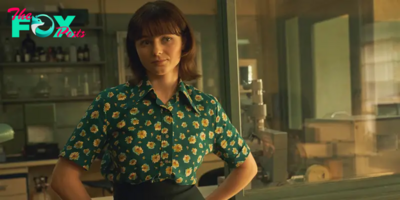
 Entertainment4h ago
Entertainment4h agoThe Real Story of Jean Purdy, Whose Work Developing IVF Is Portrayed in Netflix’s Joy
-
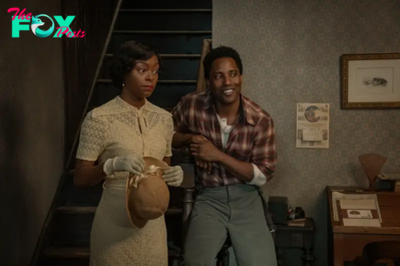
 Entertainment4h ago
Entertainment4h agoDanielle Deadwyler Is The Piano Lesson‘s Guiding Light
-

 Entertainment5h ago
Entertainment5h agoDonna Kelce’s ‘Holiday Touchdown’ Cameo Includes Sweet Easter Egg to Son Travis: ‘Love You Mommy’
-

 Entertainment9h ago
Entertainment9h agoHow Gladiator II Connects to the Original Gladiator
-

 Entertainment14h ago
Entertainment14h ago3 Completely different Kinds of TV Appearing Roles
-

 Entertainment14h ago
Entertainment14h agoAmerica On CoffeeWe’re simply inviting you to take a timeout into the rhythmic ambiance of our breakfast, brunch and/or espresso alternatives. We’re comfortable everytime you cease by.SYRUPING UP YOUR VERY OWN COFFEE FLAVORS
-

 Entertainment14h ago
Entertainment14h agoMeet Ava, the Golden Tiger Cub in Thailand Set to Be the Next Cute Viral Sensation
-
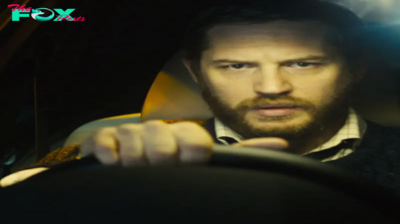
 Entertainment14h ago
Entertainment14h agoBest Tom Hardy Movies that Are Must-Watch
